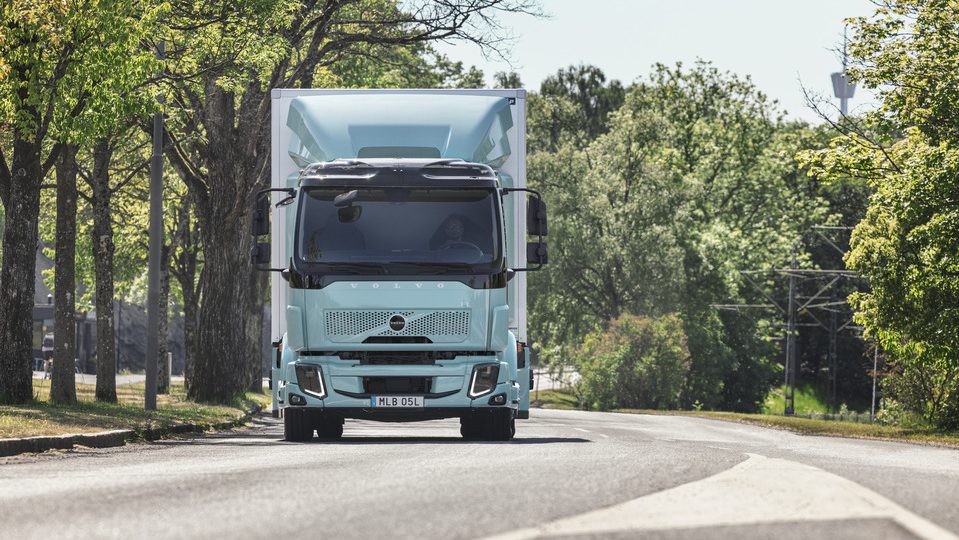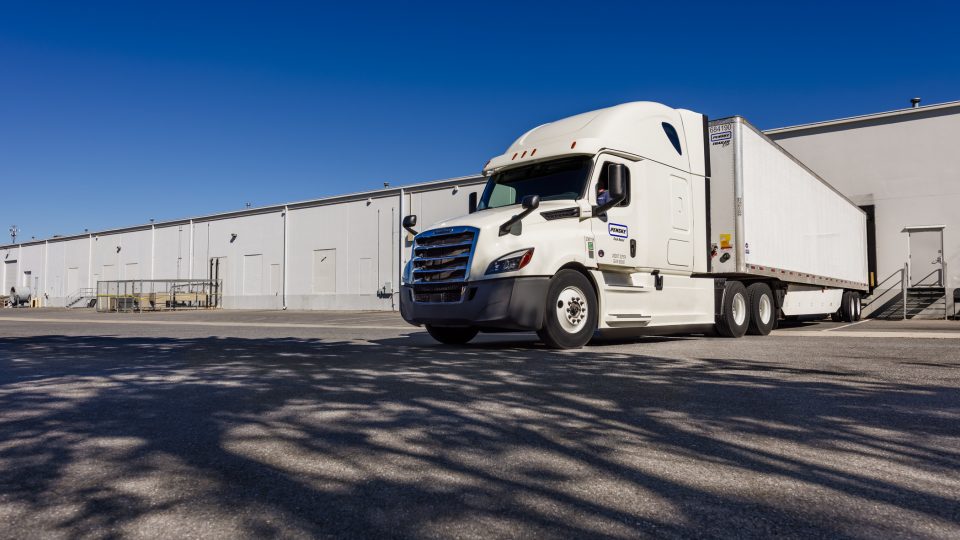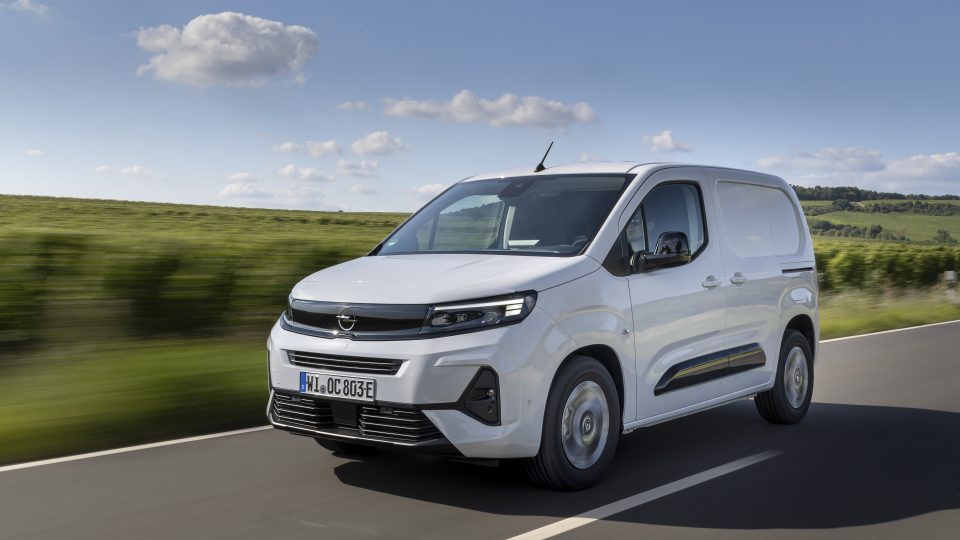The EU Parliament confirms truck emissions reduction roadmap to 2040. E-fuels excluded
CO2 emissions from large trucks (including vocational vehicles, such as garbage trucks, tippers or concrete mixers) and buses will have to be reduced by 45% for the period 2030-2034, 65% for 2035-2039 and 90% as of 2040. Despite last-minute interventions, the role of e-fuels remains excluded from the heavy-duty CO2 standards. The first reactions from ICCT and ACEA.
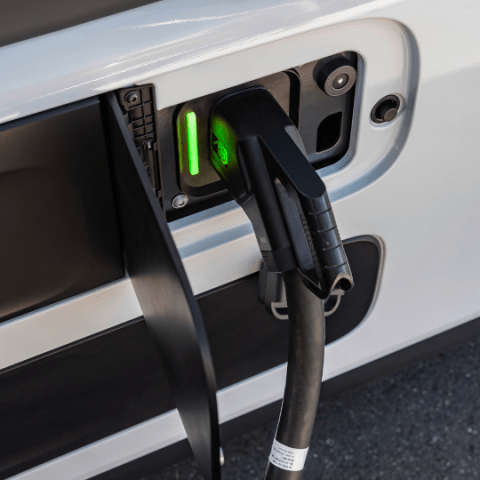
On April 10, the European Parliament approved a mandatory target to reduce 90% of CO2 emissions from new trucks by 2040. The regulation, addressing emissions from new trucks, buses and trailers, was endorsed by MEPs with 341 votes in favour, 268 against and 14 abstentions.
More into details, CO2 emissions from large trucks (including vocational vehicles, such as garbage trucks, tippers or concrete mixers) and buses will have to be reduced by 45% for the period 2030-2034, 65% for 2035-2039 and 90% as of 2040. Emissions reduction targets are also set for trailers (7.5%) and semi-trailers (10%), starting from 2030. Moreover, despite last-minute interventions, the role of e-fuels remains excluded from the heavy-duty CO2 standards. The European Commission is tasked with assessing the role such carbon neutral fuels could play in the regulation by 2027.
Truck emissions reduction roadmap: the next steps
The law requires the Commission to conduct a detailed review of the effectiveness and impact of the new rules by 2027. This review will need to assess, among others, whether to apply the rules to small lorries, the role of a methodology for registering HDVs exclusively running on CO2 neutral fuels and the role that a carbon correction factor could have in the transition towards zero-emission HDVs.
Now, the EU Council still needs to formally approve the agreement before it can enter into force. “The transition towards zero-emission trucks and buses is not only key to meeting our climate targets, but also a crucial driver for cleaner air in our cities. We are providing clarity for one of the major manufacturing industries in Europe and a strong incentive to invest in electrification and hydrogen”, stated Rapporteur Bas Eickhout (Greens/EFA, NL).
First reactions: ICCT
“What seemed inconceivable just years ago is now the unequivocal path forward. This historic legislation offers clarity to industry, leveraging zero-emission heavy vehicles as the most technologically feasible and cost-effective route to meet Europe’s climate goals. The trucking industry, Europe’s second largest contributor to transport CO2 emissions, is about to experience a transformative shift,” said Felipe Rodríguez, Director of the Heavy-duty Vehicle Program at the International Council of Clean Transportation (ICCT), a research organization advising governments on transport decarbonization.
“European regulators are seizing the opportunity to boost a booming industry: electric trucks. Over the past year, these zero-emission vehicles have been hitting EU roads, with sales tripling between 2022 and 2023. Shares of zero-emission city buses also accelerated last year, overtaking diesel sales to become the most popular powertrain, and reaching an all-time high of over 40% by the end of 2023,” added Eamonn Mulholland, ICCT’s expert on Europe’s truck CO2 standards.
The Manifesto released by ACEA
As for ACEA, leading European truck and bus CEOs have escalated their call to Europe’s policy makers with a Manifesto for getting zero-emission trucks and buses on Europe’s roads, launched today ahead of crucial European elections. Infrastructure is key: io put the scale of the challenges in context, there is almost no public charging infrastructure suitable for trucks and buses available today. Europe needs at least 50,000 publicly accessible chargers and at least 700 hydrogen refilling stations to achieve the CO2-reduction target of 45% by 2030.
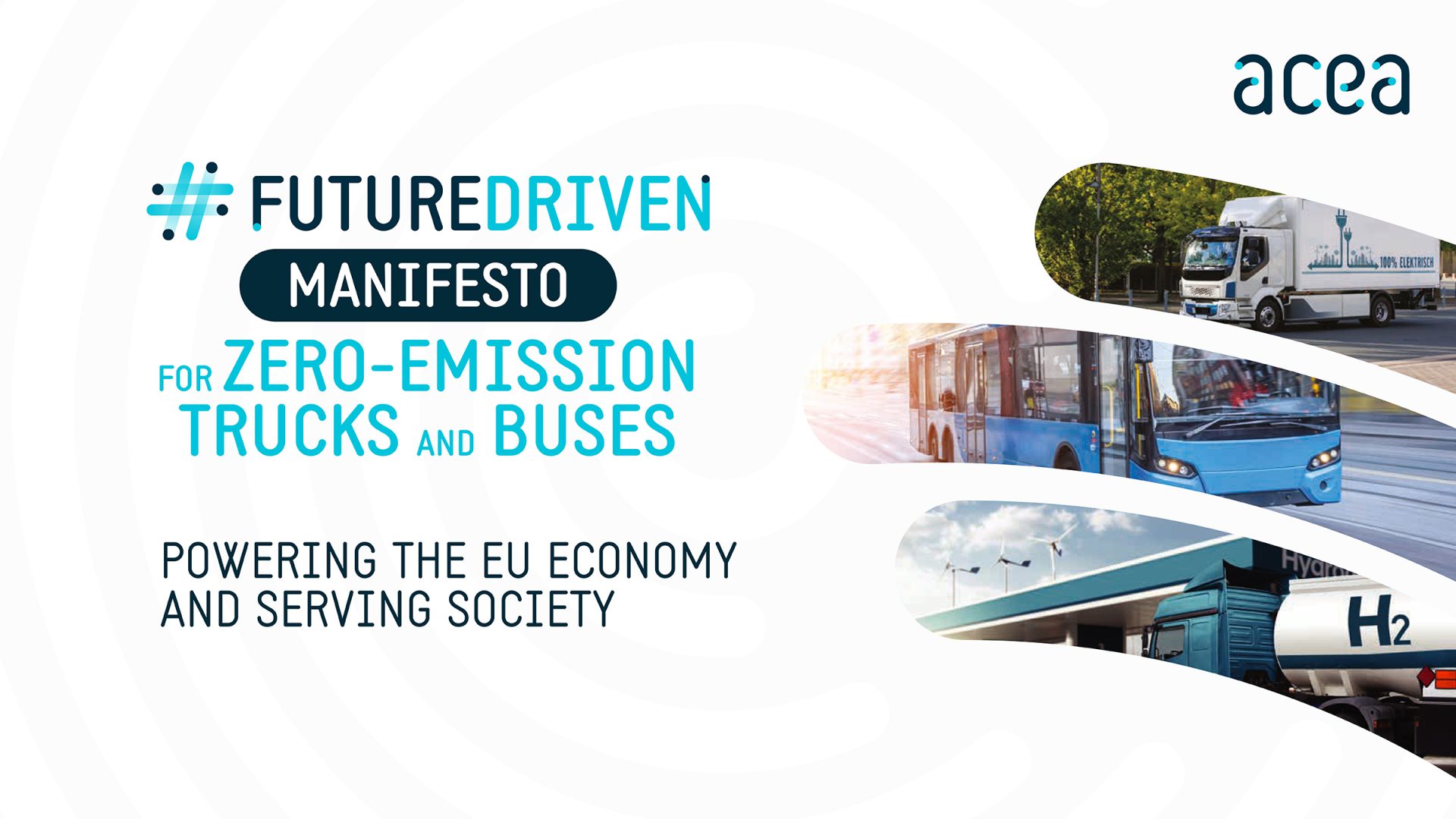
“Truck and bus manufacturers are committed to helping Europe achieve its climate goals, by providing sustainable road transport solutions. We are playing our part by investing in and ramping up production of battery-electric and hydrogen-powered models, but simply setting ambitious targets for manufacturers and hoping smooth implementation follows is not a strategy,” stated Harald Seidel, Chairperson of ACEA’s Commercial Vehicles Board. “Europe is adopting the most ambitious 2030 targets for CO2 reductions in the world. However, ambitious targets must be backed up by equally ambitious enabling conditions and a coherent regulatory framework”.










